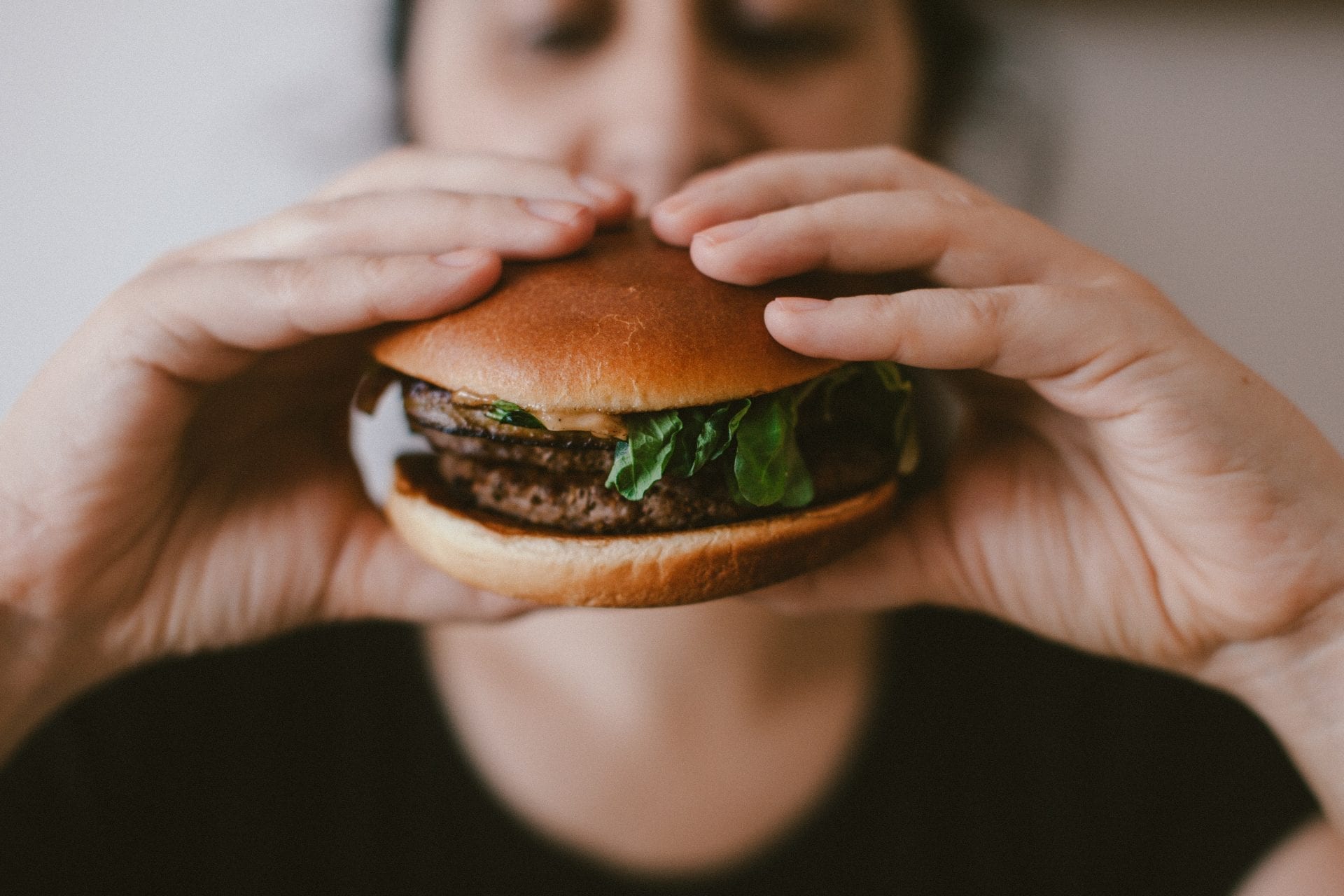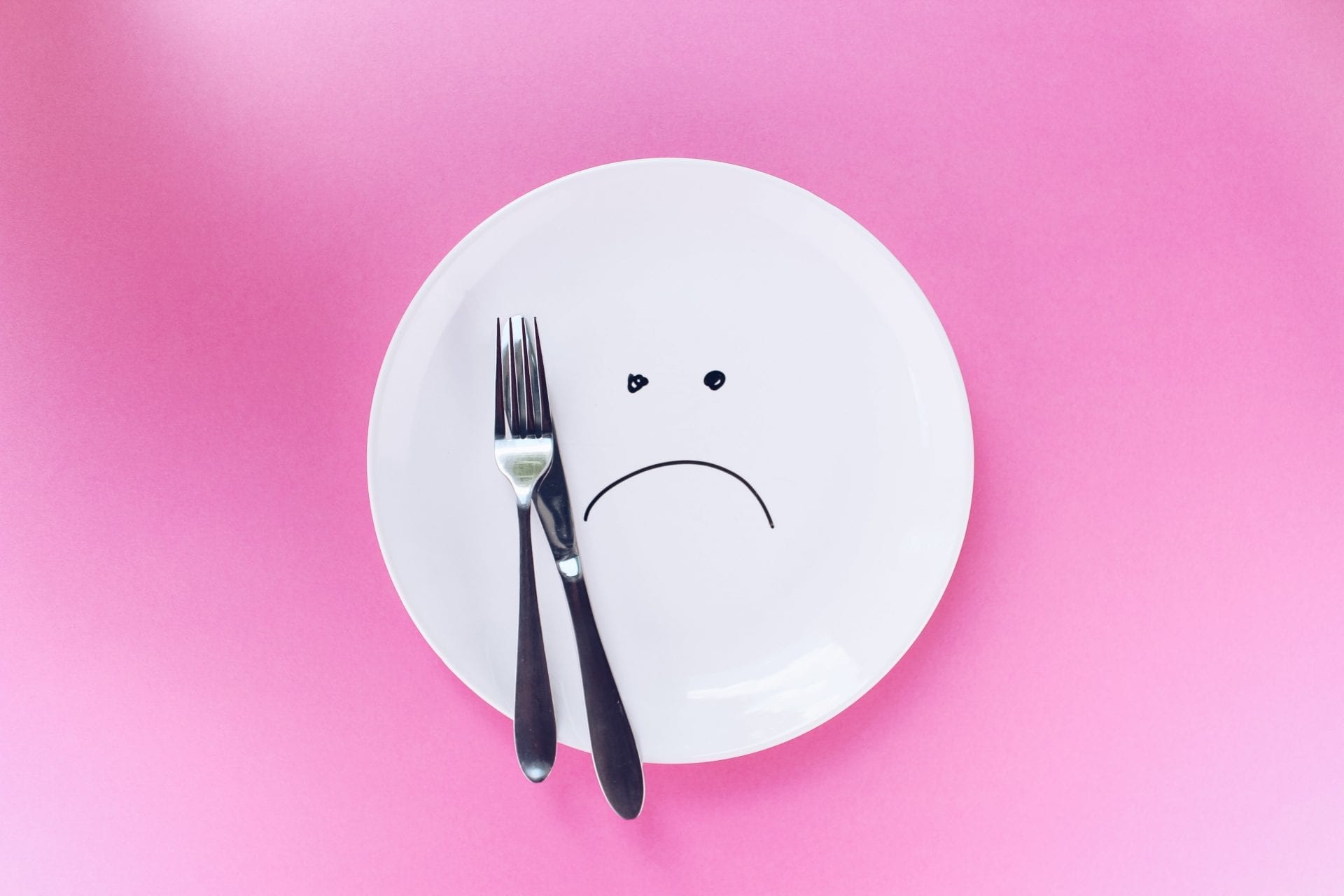How to stop emotional eating
Understand the triggers and effects of emotional eating, as well as what you can do to adopt healthier food habits.
 Food cravings can often strike when you’re feeling down. Challenging, stressful and even boring times may prompt you to reach for food as a means of suppressing negative feelings – whether you’re consciously aware of it or not. Unfortunately, if you don’t know how to stop emotional eating, it can set your weight-loss journey off course.
Food cravings can often strike when you’re feeling down. Challenging, stressful and even boring times may prompt you to reach for food as a means of suppressing negative feelings – whether you’re consciously aware of it or not. Unfortunately, if you don’t know how to stop emotional eating, it can set your weight-loss journey off course.
Below, we guide you through the steps of identifying, curbing and replacing this unhealthy dietary behaviour so that you can progress towards your weight and health goals with minimal sugary setbacks.
Emotional reasons why people eat
 The first step in overcoming your emotional eating habits is to identify and understand your triggers. Where, when and with whom are you finding comfort in food?
The first step in overcoming your emotional eating habits is to identify and understand your triggers. Where, when and with whom are you finding comfort in food?
While many people lose their appetite when stressed, negative feelings can also cause emotional eating. This impulsive, quick and mindless consumption is a means of suppressing and soothing emotions, such as anger, loneliness, sadness and stress. From breakups and work-related challenges to fatigue and money worries, both significant life events and everyday hassles can trigger emotional eating.
Let’s take a deeper look at the emotional reasons why people eat.
Stress
When under stress, your body produces high levels of a hormone called cortisol. In turn, cortisol sparks cravings for foods that give you a strong but short-lived rush of energy. Unfortunately for your health, these foods tend to be fried, sweet or salty.
Emotional avoidance
Eating may be used as a temporary means of masking emotions you don’t want to face. If you’re too busy consuming a meal, you can avoid dealing with unpleasant feelings you’d prefer to push deep down. It’s important to recognise that this is a short-term solution to your issues, and will not prevent your feelings from resurfacing once you’re finished with your meal.
Boredom
Many people eat simply because there is nothing better to do. However, this should not become a regular occurrence. Eating to fill some sort of void may make you feel full and distracted at the time, but your underlying boredom and dissatisfaction will likely remain once your meal has passed.
Social pressure
In some cases, social gatherings can also lead to overeating. Whether you feel pressure to tuck into more than you should because everyone else is doing it or you eat to overcome feelings of social anxiety in a group setting, it’s important to be aware of how your surroundings and company affect your food consumption.
Effects of emotional eating
 Understand that savouring indulgent food as an occasional treat or celebration is totally normal. Using it as your primary emotional coping mechanism, however, isn’t.
Understand that savouring indulgent food as an occasional treat or celebration is totally normal. Using it as your primary emotional coping mechanism, however, isn’t.
If your automatic reaction is to go to the fridge whenever you’re feeling down, you may end up caught in a physically and mentally detrimental cycle that fails to remedy the root issue.
Nausea
It’s easy to overeat when food is a source of comfort in times of stress or anxiety. That said, eating too much in one sitting often causes stomach pains and nausea that can last days after the short-lived reward of your meal wears off.
Health issues
Emotional eating on a regular basis can lead to a range of weight-related health conditions, including obesity, high blood pressure, diabetes and fatigue.
Feelings of guilt
Emotional eating can leave you feeling guilty, ashamed and in a worse mindset than you were in before taking your first bite. As well as your negative feelings returning soon after, you may be upset at yourself for hindering your weight loss goals.
This behaviour creates an unhealthy cycle: your emotions cause you to overeat, which then adds to negative feelings that prompt you to lose control of your eating again.
But no matter how hopeless you feel right now, know that it is possible to regain control of your emotions, prevent triggers, combat cravings and stop emotional eating for good.
How to stop emotional eating
 Now that you understand the various factors behind it, it’s time to learn how to stop emotional eating in a safe and sustainable way.
Now that you understand the various factors behind it, it’s time to learn how to stop emotional eating in a safe and sustainable way.
Know the difference between physical and emotional hunger
Before you can break the vicious cycle of emotional eating, you must understand how to recognise emotional versus physical hunger. The Mayo Clinic has outlined various differences to help you distinguish between the two:
- Emotional hunger is sudden and intense, while physical hunger builds gradually
- Emotional hunger craves certain foods, while physical hunger desires almost anything
- Emotional hunger prompts mindless eating without enjoyment, while physical hunger generally involves more awareness of what you’re consuming
- Emotional hunger seems insatiable, while physical hunger is satisfied by a full stomach
- Emotional hunger is experienced in your mind and yearnings, while physical hunger is accompanied by more bodily signs such as a growling stomach
- Overeating due to emotional hunger is often accompanied by feelings of guilt, unlike eating for physical hunger, which gives your body the nutrition it requires to function
Begin a food diary
Keeping a log of what, when, where and with whom you eat can help you to identify triggers and patterns in your emotional eating.
While this might seem like an arduous task, recording everything you eat and the feelings you experience can highlight the connections between your food and mood. And that’s the first step to finding healthier coping mechanisms.
Keep your cupboard free from comfort food
Get rid of the high-fat, calorie-dense foods that beckon you to your cupboard in moments of stress. Instead, stock up on healthy snacks, such as fresh fruit, unbuttered popcorn, and other low-calorie foods that you can reach for when the cravings strike.
Fuelling your body with enough nutrients is central to adopting healthy eating habits, and studies have shown that people eat more fruits and vegetables when they’re easily accessible!
Measure portions and eat mindfully
Practice mindful eating. Get into the habit of rating your hunger on a scale of one to ten before you begin your meal. If you discover that you’re not actually feeling that hungry, wait 15 minutes and rate your levels again. Only eat once you reach five on the scale and are genuinely hungry. At the same time, don’t leave it too long before satiating your hunger or you may overeat.
When it’s time to tuck in, measure out portions carefully and use small plates to support this portion control. Then take things slow, chewing each bite properly before swallowing, as this will give your mind time to process what’s happening in your stomach. By savouring your meal, you’ll not only relish each bite more but you’ll also reduce the risk of overeating.
Get rid of distractions while you dine
Lots of people find themselves eating away while watching television, scrolling through their phone or working on their computer. Next time this happens, try switching off from these distractions while you eat.
That’s because when you eat due to emotional hunger, you can mindlessly consume food to the point that you miss out on your stomach’s cues of fullness. So try to concentrate solely on the experience of your meal, paying full attention to its textures, tastes, smells and effects on your body.
Seek some support
A solid support network can make a big difference to your healthy eating efforts. Family, friends, exercise buddies and even therapists and dietitians can be as key to your success as your own internal drive.
So surround yourself with people who truly care about your mental and physical wellbeing. From encouraging your progress and sharing tips on healthy eating to listening to your underlying emotional struggles, this support network can be a source of strength when you need it most.
Focus on the bright side
No one is happy and successful 100% of the time – it’s simply not human nature. However, you can learn to focus on your strengths instead of your downfalls.
If you do engage in emotional eating, don’t beat yourself up. Rather, remember that tomorrow is a new day. Use this setback as an opportunity to learn from your mistakes and move forward. By concentrating on your successes, you can fuel your motivation to eat healthier!
What to do instead of emotional eating
Finding another way to cope with your negative emotions is a critical ingredient when it comes to stopping your emotional eating. As this step involves a change in mindset, it is not an instant shift but rather a gradual process that may require trying out various activities until you settle on a stress relief mechanism that works for you.
Start by creating a list of potentially enjoyable alternatives that don’t involve anything to do with food. From yoga, walking and swimming to knitting, reading and meditating, there are plenty of healthy, productive and mindful activities to choose from.
Whatever replacement activity you go for, remember the following pieces of advice:
- Prioritise daily exercise, which boosts your energy and mood while reducing stress.
- Get 8 hours of sleep each night. When you’re tired, your body craves sugar for a swift energy hit. Enough sleep will help to curb this appetite.
- Make sure to dedicate a minimum of 30 minutes each day to truly relax and recharge.
All in all, sleep, physical activity and creative outlets support a healthy mind and body that will better equip you to deal with life’s ups and downs without feeding your feelings.
Get emotional eating support from a registered dietitian
While the above tactics can help you to conquer your cravings and adopt healthier habits, it’s important to seek professional support if you feel you cannot control your emotional eating alone – particularly after weight loss surgery.
If you have undergone a bariatric procedure and need expert support to stick with your diet, Newcastle Obesity Surgery Centre’s experienced dietitians can help you to achieve your goals. Our dedicated team offers monthly reviews, round the clock contact, an exclusive Facebook group and tailored support groups.
We can also refer you to trusted psychologists, exercise physiologists and meal delivery services to maximise your post-surgery support. In fact, research suggests that structured nutritional guidance following bariatric surgery can significantly improve your ability to achieve your weight loss goals.
To start your journey with Newcastle Obesity Surgery Centre, please book an appointment through our contact form or get in touch on 02 4058 3936.





